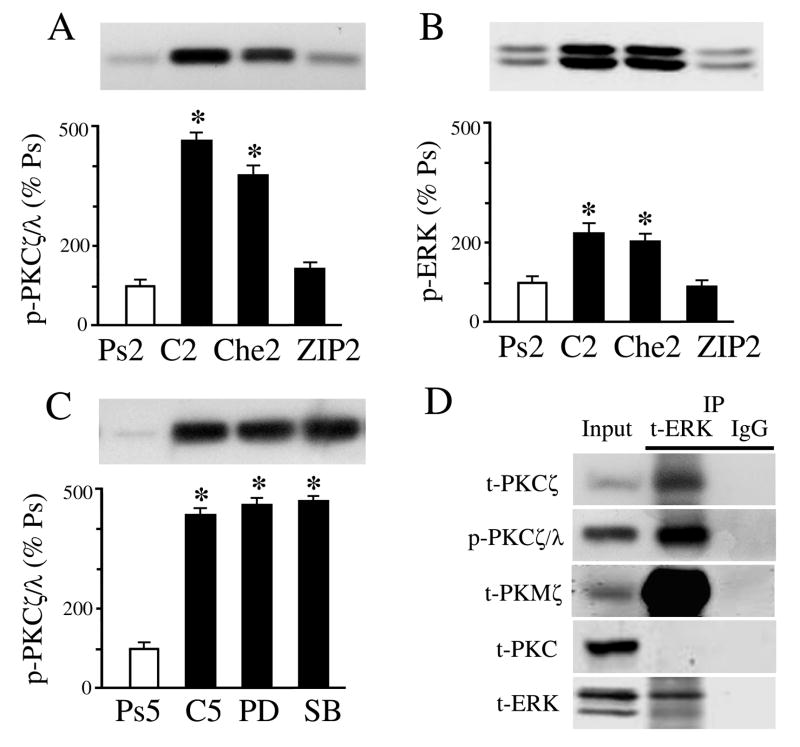Fig. 6.
Evidence that PKCζ is upstream from and actives p-ERK during in vitro conditoning. (A) ZIP applied for two pairing sessions (ZIP2) at the beginning of conditioning suppresses expression of p-PKCζ/λ to pseudoconditioned levels compared to conditioning. (B) Application of ZIP also suppresses p-ERK expression, while the PKC antagonist Che does not. (C) The ERK and p38 MAPK antagonists PD98059 (PD) and SB203580 (SB), respectively, fail to affect levels of p-PKCζ/λ compared to conditioning. (D) Coimmunoprecipitation experiments reveal that t-PKCζ, p-PKCζ/λ, and PKMζ interact with t-ERK while t-PKC does not. * indicate significant differences from Ps. P values are given in the text.

